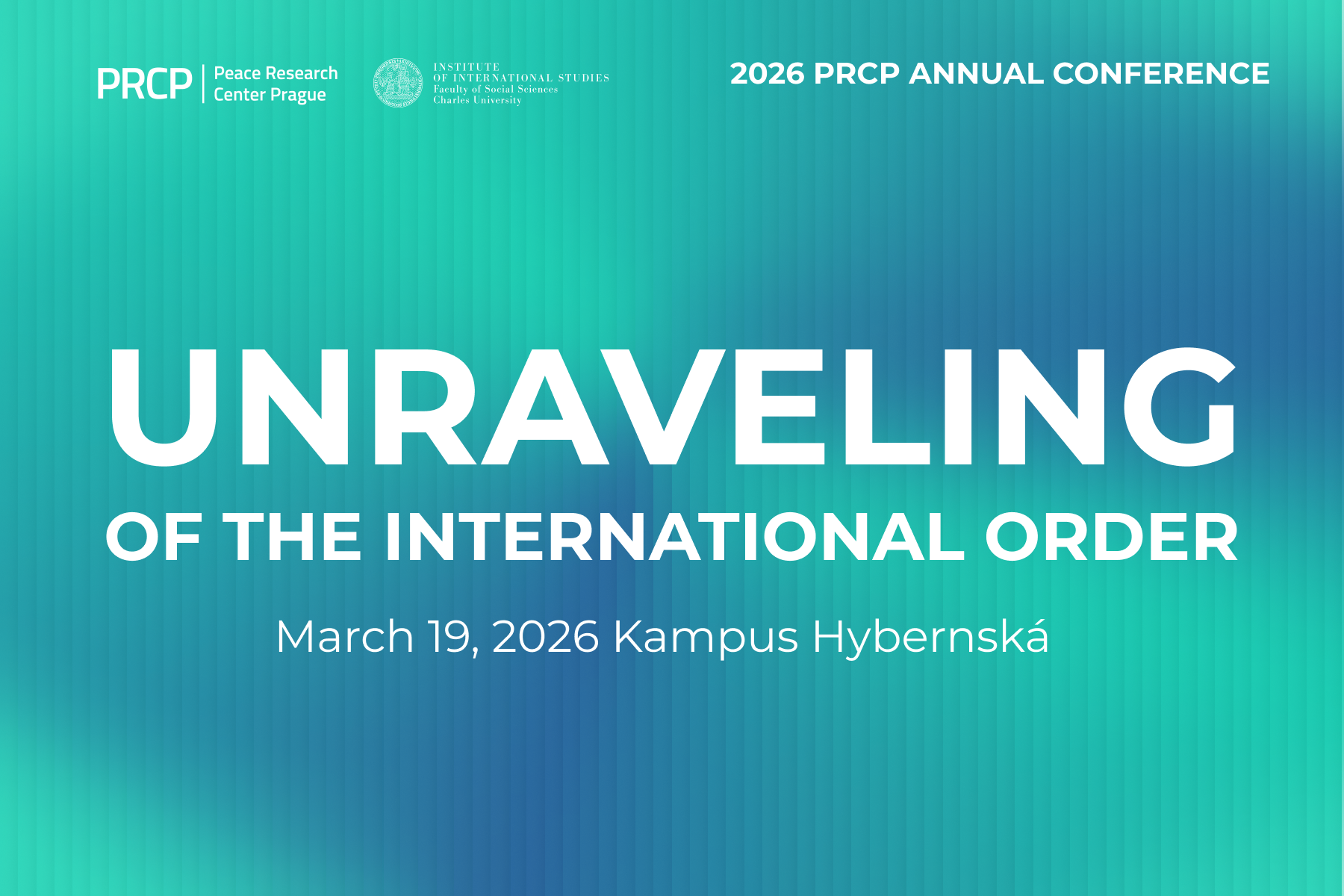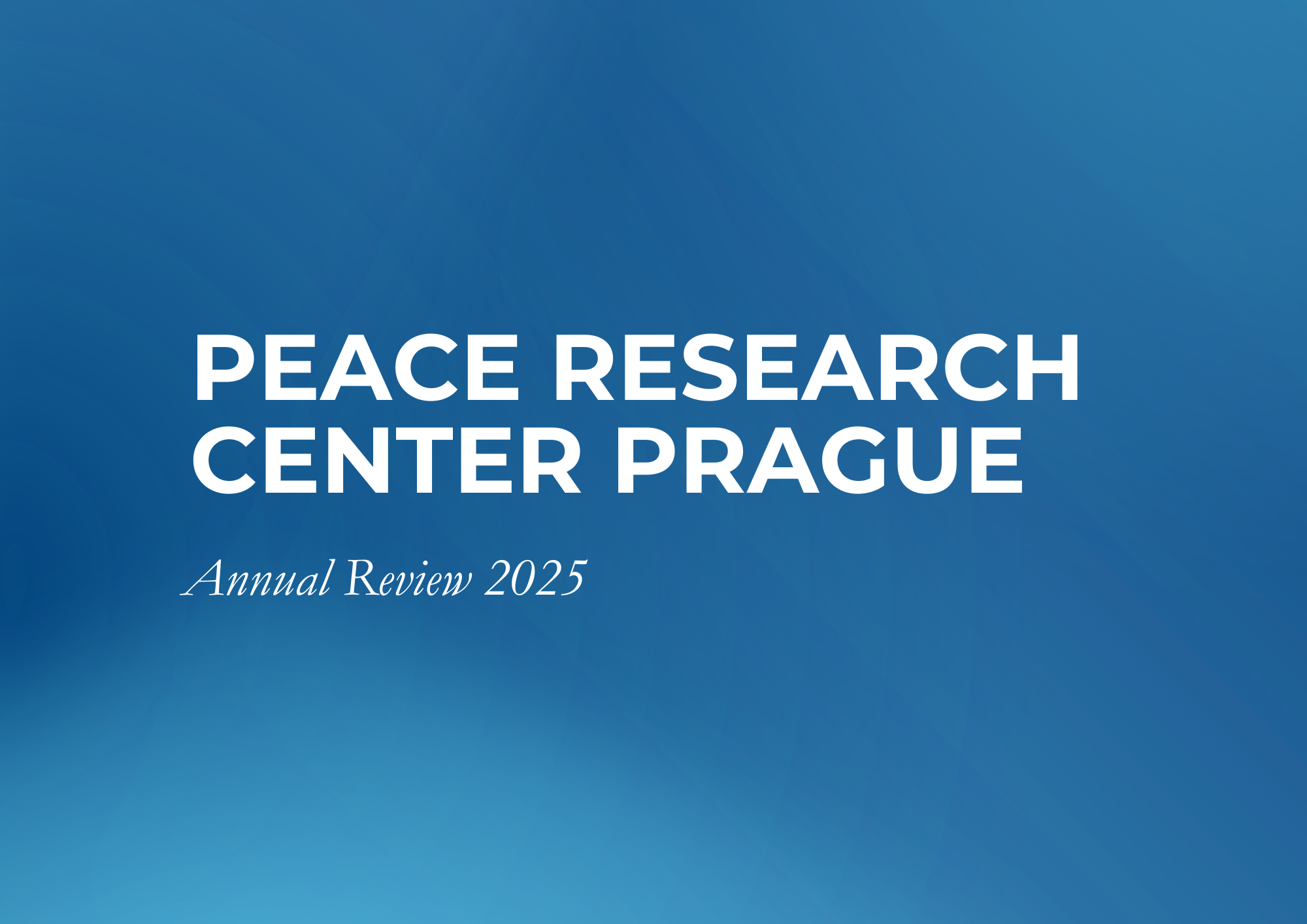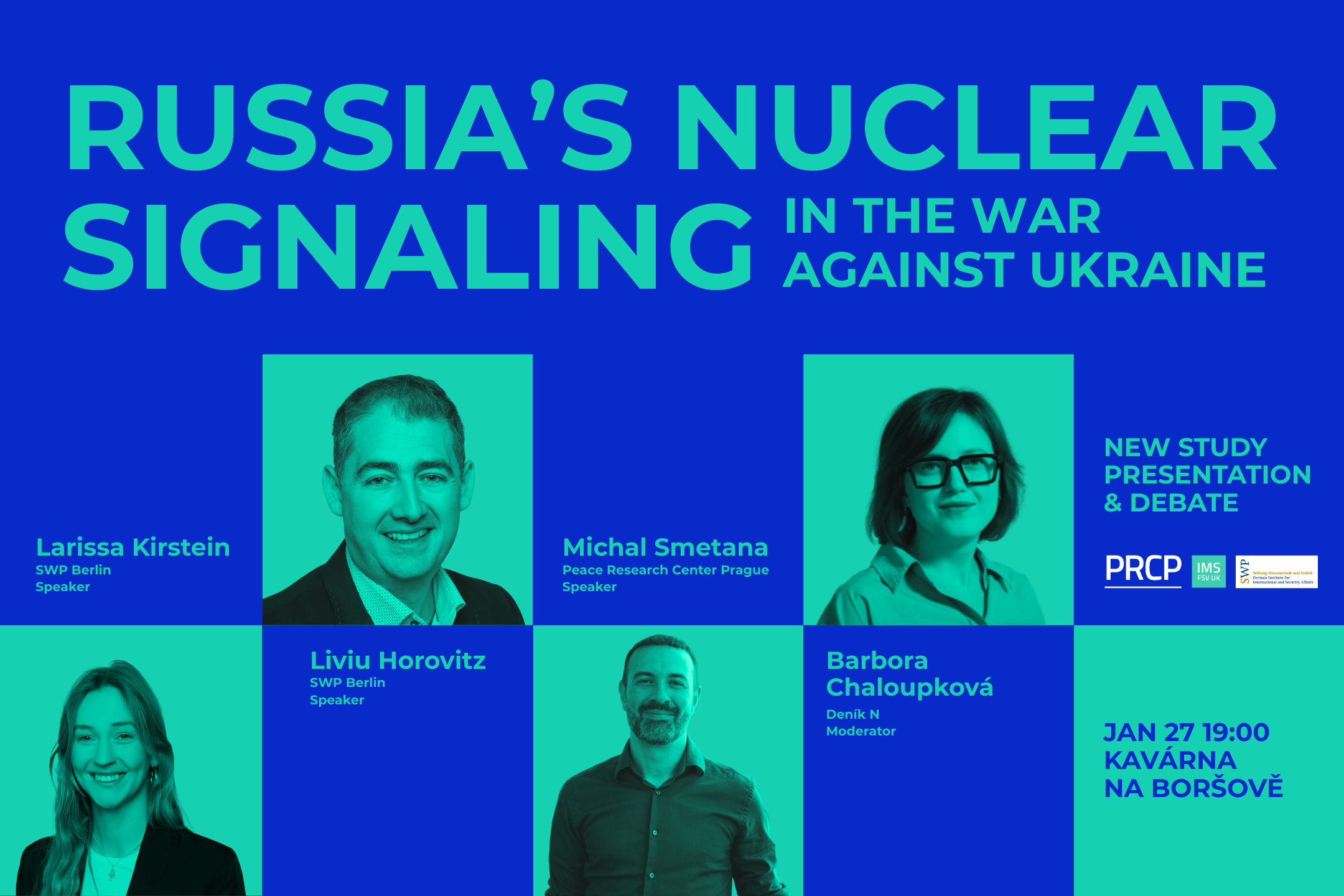Public support against usage of autonomous weapons is well documented, yet prior experiments focus largely on U.S. samples and “terrorist” scenarios, limiting cross-national generalizability. This preregistered experimental survey in the United States, Brazil, Germany, and China finds that the public responds similarly to risk-based primes across countries, enemy identity has no significant effect, and Chinese respondents show higher overall support. Find the full study here.
Register for the PRCP Annual Conference 2026!
Join us for the PRCP Annual Conference on March 19 at Kampus Hybernská (Cirkulární Hub) for a timely discussion on the current erosion of the international order. Welcoming Prof. Janina Dill from Oxford University as the keynote speaker, we will discuss three themes: Europe’s role in the disintegration of the international legal system, dual-use tech rivalry, and new research on foreign interference. Register via this link.
New article in Survival: How the EU integration took inspiration from the US before Trump
Jan Hornát’s article in Survival explores how the European Union long reflected the United States’ federal “peace pact” model, and why this mirror shattered under Trump’s administration. The article highlights how Trump’s interpretation of the EU as a hotbed of liberal culture wars and his open support for populist and far-right movements destabilises the European peace architecture the United States once encouraged.
Our work has been featured in Ukraine: The Latest from The Telegraph
As the New START treaty expires in February 2026, there will no longer be any agreement constraining the United States and Russia from a nuclear arms race. In these times, it has become imperative to understand the nuclear dynamics between the two great powers. Our recent working paper mapped the chronology of nuclear signaling between Russia and NATO during the first three years of the war in Ukraine and has been featured in a recent episode of Ukraine: The Latest by The Telegraph.
Can nuclear deterrence and disarmament go hand in hand? Evidence from 24 countries shows they do
Nuclear deterrence and disarmament do not necessarily need to go against each other. A new paper by Lauren Sukin and colleagues shows many people hold both pro- and anti-nuclear views. Using survey data from 24 countries (N=27,250), the study finds publics value both deterrence and disarmament rather than categorical positions.
New paper on grand strategic change after critical situations: Cases of Israel and Czechia
Zuzana Lizcová & Rob Geist Pinfold’s article in EJIS explores whether grand strategies and strategic narratives endure or shift after traumatic geopolitical shocks. Comparing Israel’s response to 7 October 2023 with Czechia’s reaction to Russia’s 2022 invasion of Ukraine, it finds that the scale of strategic change reflected the severity of perceived threat and disruption.
PRCP Annual Review 2025
At the PRCP, 2025 will likely be remembered as a year that was busy, challenging, but also rewarding in many different ways. Having published more than 25 peer-reviewed articles in prestigious journals alongside many working papers and policy briefs while also providing more than 1300 media interviews and commentaries, we hope to have contributed greatly to both academic and public security discussions. See our Annual Review 2025 here.
Russia's Nuclear Signaling: Register for New Study Presentation & Debate
Most Russian nuclear messaging during the war in Ukraine has not been about explicit nuclear threats, but about amplifying uncertainty and fear. The PRCP and SWP have recently published a working paper that systematically tracks this dynamic. Come join us on January 27th at 19:00 in Kavárna Na Boršově where we will introduce the study and discuss it with the authors! Register here.








